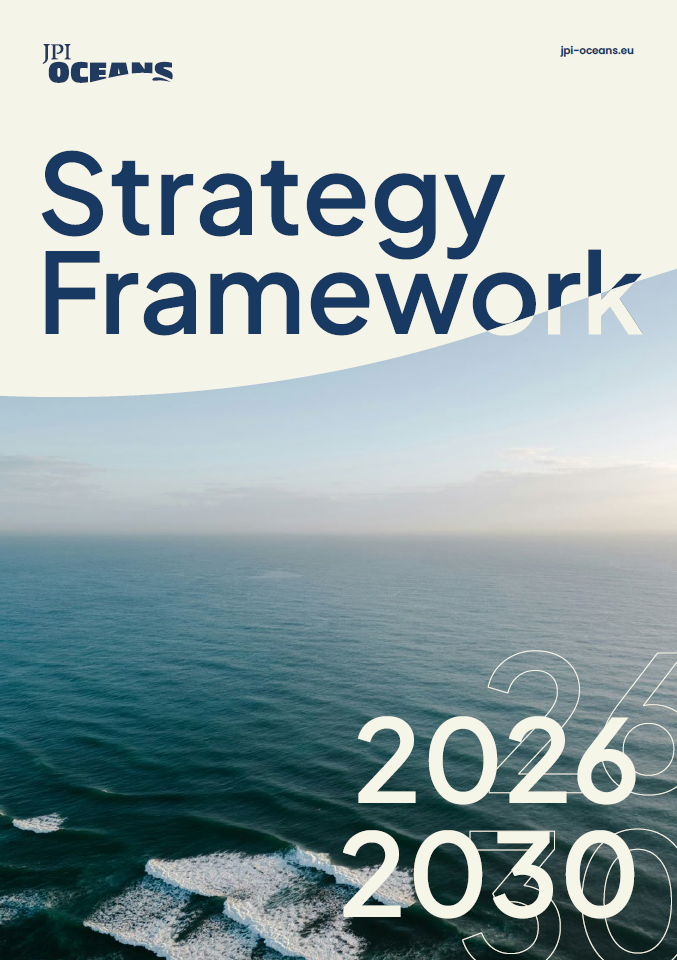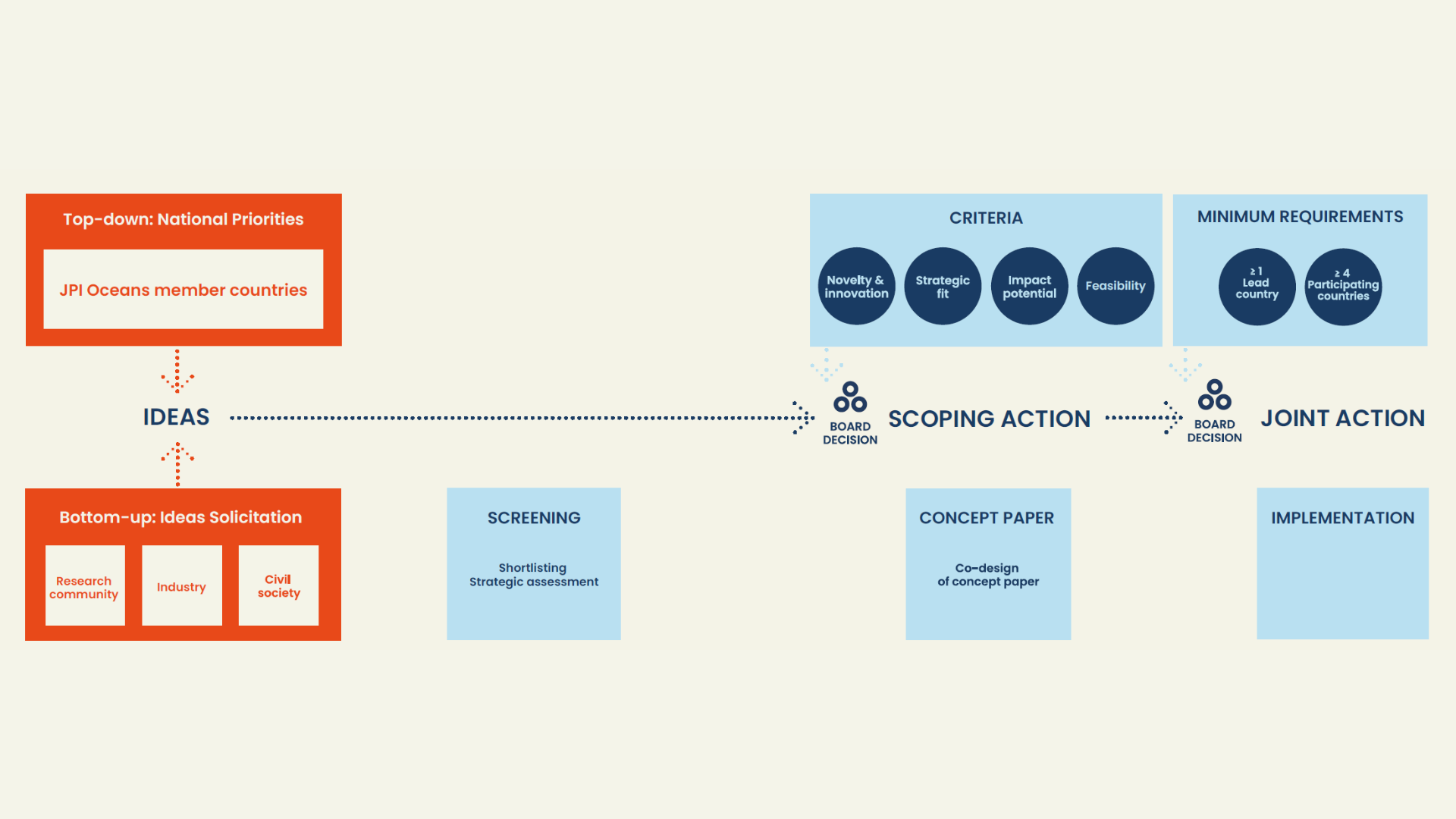Co-created by JPI Oceans members, the Strategy Framework 2026-2030 builds on the successes of the previous strategy period and reinforces JPI Oceans' role as a forward-looking platform that pioneers emerging topics, orchestrates research and innovation, and structures knowledge for policy impact.
JPI Oceans’ thematic scope remains a continuous framing defined by the three interconnected priority areas for a resilient ocean including (1) Ocean Stewardship & Governance, (2) Ocean Health, and (3) Ocean Economy. These are complemented with three ambitions for maritime development that include responsibility, sustainability, and competitiveness.
The revised thematic space represents the next evolutionary step of JPI Oceans on the trajectory since its first strategy, the SRIA 2015-2020. The Strategy Framework 2026-2030 refrains from attempting to anticipate topics that could become relevant and feasible for adoption by JPI Oceans within the outlined high-level scope. This open thematic approach maintains flexibility to address emerging challenges and opportunities, enabling JPI Oceans to act as a first mover on novel topics.

Ocean stewardship and governance was moved more prominently to the upper part of the circle, reflecting a strategic embracement of JPI Oceans to put more emphasis on marine research infrastructures, ocean observing and monitoring, data access, educational aspects, and other aspects of strengthening the foundations of knowledge-based interaction with the ocean.
Healthy and productive seas and oceans remain at the heart of the vision of JPI Oceans.
The current thematic scope has evolved the terminology from ocean productivity and blue economy to addressing the ocean economy with the ambition of enabling competitiveness.
JPI Oceans prioritises, structures, and funds international research and innovation for sustainably healthy and productive seas and oceans. First, we align priorities by engaging member countries in sharing national priorities, identifying emerging topics, and participating in transnational science-policy processes at regional, European, and global levels. Secondly, we implement collaborative research and innovation that maximises resource efficiency and impact, whilst maintaining flexibility to respond rapidly to new opportunities and collaborations. Third, we impact decision-making by ensuring research and innovation outcomes contribute to transformative policy towards healthy seas and oceans and a sustainable ocean economy by facilitating knowledge transfer and increasing ocean literacy among key sectors of politics and society. Our distinctive strength lies in our capacity to act as a first mover on emerging topics, orchestrating coordinated research and innovation where knowledge gaps exist, and structuring unwieldy knowledge into actionable scientific guidance for policy.

JPI Oceans operates through an agile and flexible approach that maximises resource efficiency and impact. Our implementation is built on variable geometry, allowing member countries to participate in Joint Actions based on their specific priorities and capacities, with a minimum of four countries ensuring critical mass for meaningful collaboration. Through diverse implementation tools—including Joint Calls, Knowledge Hubs, and infrastructure sharing—we facilitate collaborative research and innovation that addresses shared challenges across European sea basins and beyond. Co-design is central to our approach: we align national priorities, solicit ideas from the research community and stakeholders, and develop activities through close collaboration between participating countries, scientific experts, and policy makers. This ensures our activities remain focused on delivering tangible impacts whilst maintaining scientific excellence, feeding expert knowledge effectively into policy processes to support informed decision-making at national, European, and international levels.

Joint Programming Initiatives were established to further align the European Research Area by enabling multinational funding opportunities, better coordination, increasing cost-efficiency and synergies, and reducing fragmentation in European research policy. Operating in the vast marine environment is challenging and costly. The distinctive role of JPI Oceans is to strategically prioritise and fund transnational research and innovation to increase the efficiency and impact for sustainably healthy and productive seas and oceans.